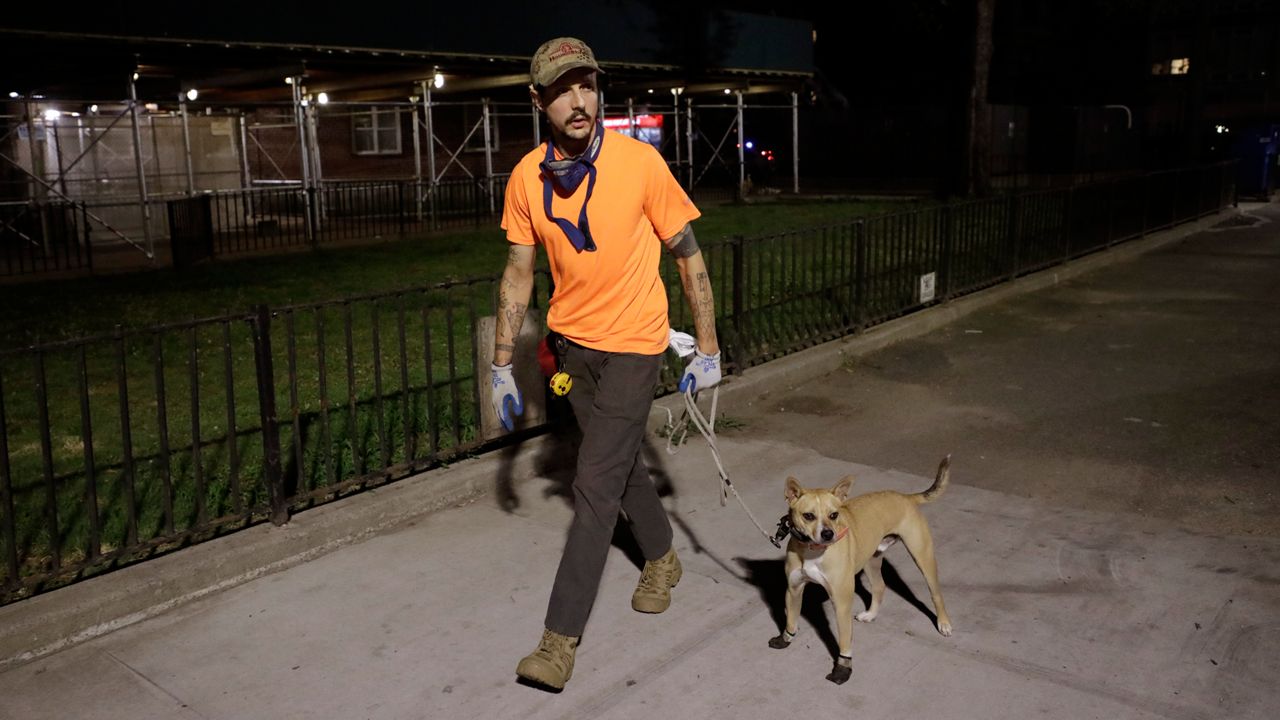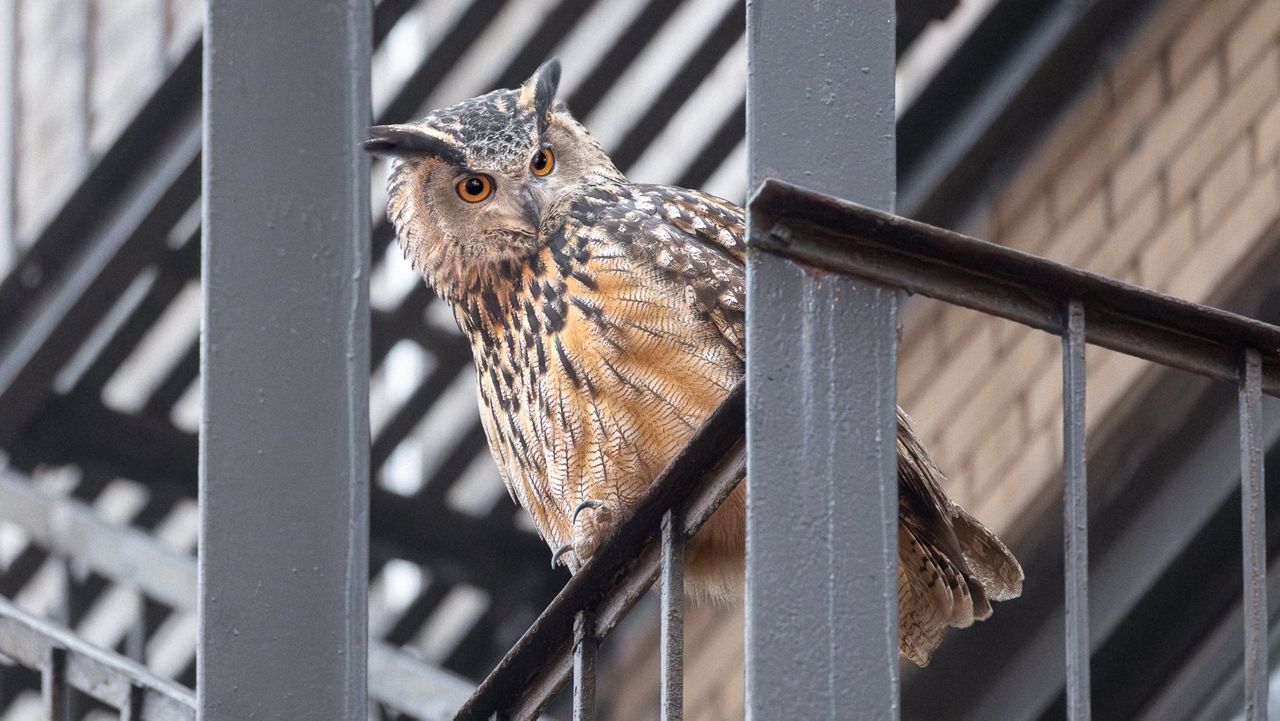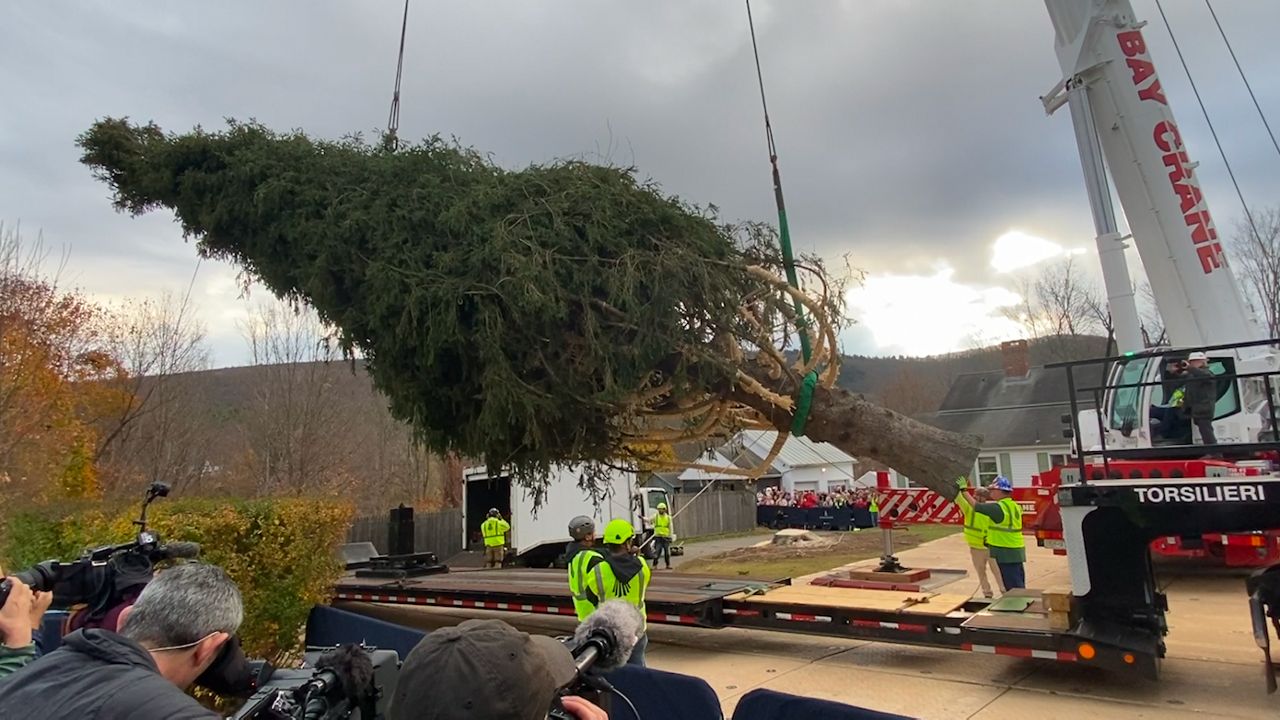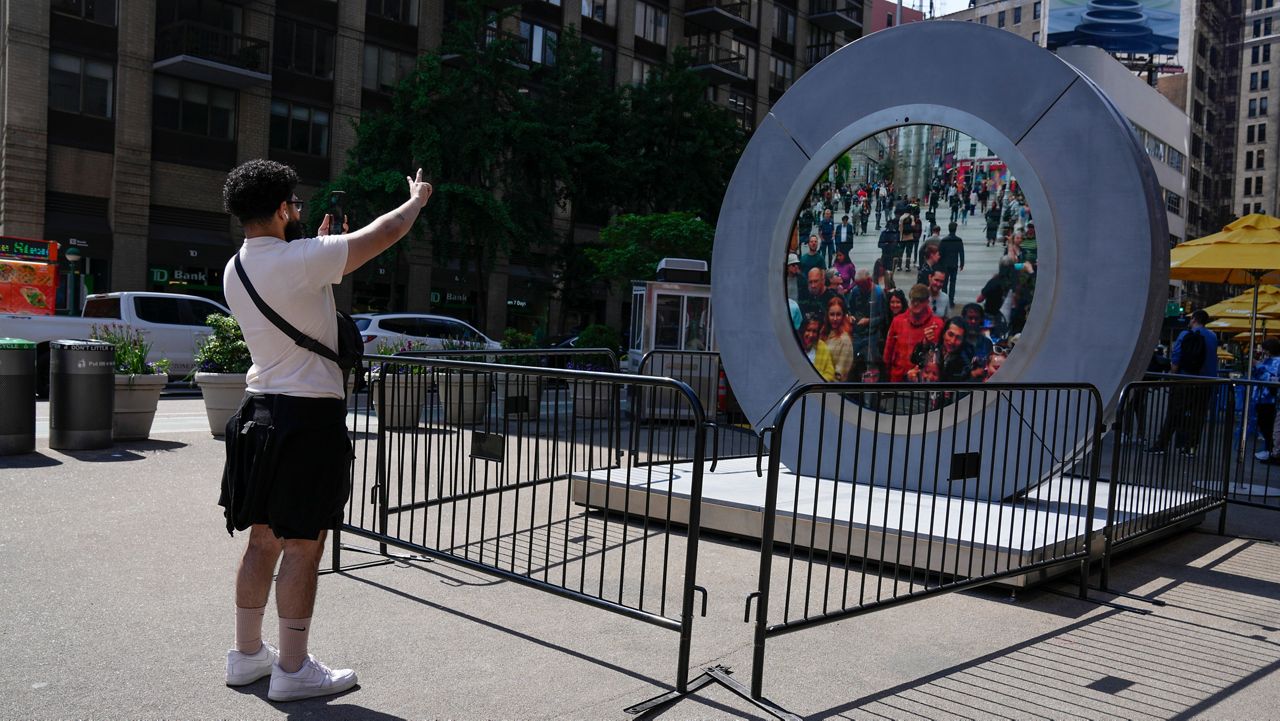Like most dog owners, Elias Schewel loves posing for photos with his dog Sundrop. Unlike most dog owners, he’s also likely posing next to a row of dead rat carcasses Sundrop just hunted.
“We are not providing a service,” Schewel says. “We are doing it for fun.”
Schewel, 35, and Sundrop are among a small number of rat hunters who regularly go out into the streets of New York to tackle the rodents in the piles of garbage where they thrive.
Schewel and Sundrop go out about four nights a week into neighborhoods with high rat populations — such as Bedford-Stuyvesant and Bushwick — to kill as many rats as Sundrop can catch, sometimes up to 20 in just four hours, Schewel says.
“It used to be the biggest sport in the city,” Schewel says. "Baseball was pushed as an alternative, this is what I’ve been told."
The pair work as a team, with Schewel flushing rats out of the trash and Sundrop grabbing them in his teeth, shaking their bodies and breaking their backs, Schewel says.
"It’s actually been a great pleasure of mine watching [Sundrop] learn how to make a kill,” Schewel says. “It’s like whack-a-mole.”
Schewel then poses with the day’s kill and posts to local Facebook groups where, predictably, he gets a strong response.
"Not all heroes wear capes,” Mar Lene responded to a recent Facebook post. "Thank you doggos!"
“I Hate rats,” Toni M Diggs added. "Please kill them all.”
While Schewel’s hobby is a unique one, his concern over how New York City handles its rat problem is not, and the novel coronavirus pandemic has only complicated the issue.
“If anything I think they’re going indoors,” Schewel says. “Rat behaviors are varying, but anecdotally, more rats are going into homes looking for food.”
Rat sightings have been steadily increasing since New York City began reopening after its months-long stay-in-place, when complaints to 311 reached record lows.
New Yorkers reported less than 1,000 rats in April, which is about a third less than the 1,465 spotted during the same period last year. The number of sightings increased to 1,658 in June 2020, and during the first five days of July, residents saw 220 rats, 20 fewer than the 240 reported during the same time span in 2019, city data show.
But while rat sightings decreased, the Centers for Disease Control and Prevention warned cities in lockdown to expect "unusual or aggressive rodent behavior” as the furry critters hunted for food.
Bill Swan, rat specialist and co-owner of NYC Pest Control in Brooklyn, says the problem is us.
"You’re removing people, who are slobs, and that is reducing their food menu, so to speak,” Swan says. "So they’re being forced out of their domain to get food.”
Swan argues the most effective way to fight rats is to be clean and tightly tie up garbage, but this could become problematic in the years ahead as New York City faces an economic crisis that forced Mayor Bill de Blasio to slash a proposed $95.3 billion budget to just $88.2 billion.
While the Health Department’s Pest Control Services bureau — which inspects for rodents, conducts cleanings and runs the Rodent Indexing project that targets efforts in rat-heavy neighborhoods — managed to hold on to its $12.3 million budget, the Sanitation Department's rat reduction program took a hit.
Budget documents show the Sanitation Department will move $1.5 million away from its Rat Mitigation Project in 2021 and up the amount to $1.7 million in 2024, which will mean 25 percent less trash pick-ups in areas with big rat populations.
Litter Basket Service is also slated to see a $5.6 million cut which could mean less pick-ups in the years ahead, the budget report shows.
While this matters less with modern trash receptacles that lock up and compress garbage, the older mesh-siding trash cans could overflow and become, as Swan puts it, “a smorgasbord for rats.”
But Schewel says that New Yorkers are already getting active, asking him to come to their neighborhoods to hunt or even requesting rat-killing trainings for their own pet dogs.
The amateur rat hunter, whose efforts barely make a dent, doesn’t think his hobby is a long-term solution to New York City’s rat problem, but he’s got an equally novel pitch for lawmakers: repeal a ban on ferrets enacted by former Mayor Rudy Giuliani.
The biggest problem rats pose is when they get inside New Yorkers’ walls and their dander, urine and feces contaminate the air, Schewel explains.
Dogs and cats cannot get into those small crevices and poison only adds contaminants to the environment, Schewel says.
“If we had ferrets we could do something with those wall infestations,” Schewel says. "New York City really needs is a ferret problem."








